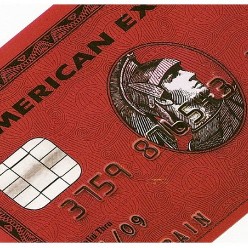Major Banks Refuse to Approve Online Gambling Transactions

Back in 2013, three US states consisting of Nevada, New Jersey and Delaware legalized online poker but despite the regulated sites running pretty smoothly since then, some of the big banks are still continuing to refuse credit and debit card transactions.
In fact, major financial institutions such as J.P. Morgan Chase, American Express, and Wells Fargo have all publicly stated that they will not process any money transactions on these sites, legal or otherwise. Highlighting the perplexing situation, Wells Fargo still seems to be upholding the Unlawful Internet Gambling Enforcement Act of 2006 as it stood prior to its 2012 reinterpretation which paved the way for at least state-by-state lawful online gambling. As Wells Fargo executive, Nathalie Brown, explains:
“In compliance with regulation GG (Unlawful Internet Gambling Enforcement Act of 2006), we prohibit the use of consumer credit cards for Internet gambling. The networks (Visa, MasterCard and American Express) monitor the merchant category codes and block charges that don’t comply with federal regulations.”
Gambling services a losing bet for banks?
Interestingly, the stance taken by big banks doesn’t seem to be solely related to the murky reinterpretation applied to the UIGEA last year, or any kind of moral imperative, for that matter, but appears to be predominantly a cautious business decision. Apparently, this is based on the fact that through experience banks have found gambling services tend to account for a disproportionately higher number of credit card losses and disagreements amongst its card holders.
“Gambling services, historically, account for a high number of card member credit losses and customer service disputes,” explains American Express spokeswoman Sanette Chao.
Obviously, the conservative approach taken by financial institutions has caused a great deal of frustration amongst both gamblers and gaming sites alike, with the CEO of Ultimate Gaming, Tobin Prior, acknowledging the difficulties presently faced by online gamblers, but also promising to find alternatives for his customers.
One of the workarounds utilizes the symbiosis between brick-and-mortar casinos and their online gaming partners, which allows their customers to deposit and withdraw funds from land based casinos, or alternatively use electronic check or wire transfers to deposit funds. For instance, as Ultimate Gaming CEO Tobin Prior, explains, in either Southern Nevada or Atlantic City, the company’s customers are able to use both methods to make deposits.
However, there remains a need for greater education and awareness regarding online gaming transactions within the legalized states of Nevada, New Jersey and Delaware, and acknowledging the work still ahead, Caesars WSOP site’s spokesperson Seth Palansky, commented:
“You wish everything went smoothly [but] it’s not the reality. It’s a new business.”
Rejection of credit cards bad for US internet gambling industry
Without a doubt, the major banks’ rejection of credit card transactions related to internet gambling comes at a pressing time for the USA’s fledgling online poker industry, which has a long way to go if it is to eventually become the lucrative proposition initially predicted by initial state projections.
Furthermore, a report by H2 Gambling Capital states that global gross internet and mobile gaming business could reach $25.8 billion by 2018, equating to around 5% of total gambling win. This further emphasizes the increasing need for a competitive US online gambling businesses to embrace credit card transactions.
Credit card acceptance within the next few years
Nevertheless, Vantiv Gaming Solutions VP Joe Pappano, expressed confidence that credit card acceptance will come over the next few years as greater cooperation is sought between politicians, banking regulators, and online operators. Joe Pappano says he believes that up until now the major banks’ reluctance to honor transactions to or from internet gambling sites based in the USA’s three regulated states stems from their interpretation of the 2006 UIGEA, when federal law banned financial institutions from allowing payments for online wagering.
Meanwhile, the Cincinnati based Vantiv Gaming Solutions, which was formed as a subsidiary of Fifth Third Bank in 2009, currently handles $37.3 billion in annual revenue from casinos spread across 39 states in the US. Vantiv Gaming Solutions has also been processing credit card transactions in Nevada, Delaware and New Jersey, with VP Joe Pappano highlighting the need by the gaming industry to continue to “move rapidly to capitalize on these new opportunities.” Pappano does, however, note that the situation has become increasingly laborious to navigate but says it is necessary in order to ensure an exceptional customer experience.
“We’ve been processing payments for banks for over 40 years electronically. We handle payments for many e-commerce sites, so we’ve taken that same infrastructure and adapted it for Internet gaming..That’s why we have educate them..to sustain positive movement in I-Gaming. You have to remember it has only been legal for about seven months, starting in Nevada then Delaware and New Jersey.”










